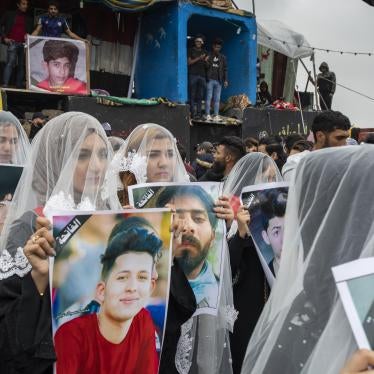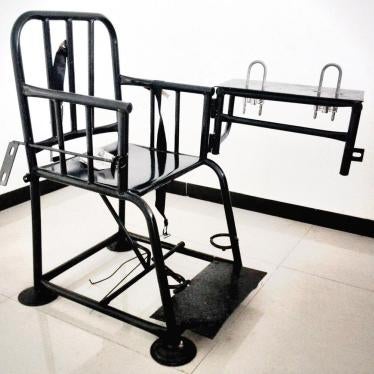(New York) - Saudi Arabia's minister of culture and information, Dr. Abd al-‘Aziz Khuja, should rescind the regulation issued on January 1, 2011, that restricts expression online and through other electronic means, Human Rights Watch said today.
The new regulation subjects virtually all news and commentary distributed electronically to the country's press law, which requires anyone posting such communications to obtain a press license and abide by broadly-worded content limitations. These include bans on "offending" others and "compromising" the nation's economy or security, and a requirement to abide by Islamic law.
"What little freedom Saudis have gained in expressing their views online, what little vibrancy Saudis have enjoyed in their media, this regulation shuts down," said Christoph Wilcke, senior Middle East researcher at Human Rights Watch. "They provide a fig leaf of legality for government suppression of burgeoning, uncensored online expression in the kingdom."
These restrictions are overly broad and contrary to the right to freedom of expression, Human Rights Watch said. Freedom of expression is guaranteed by article 32 of the Arab Charter on Human Rights. Under international law, restrictions on freedom of expression must be strictly limited to meet a legitimate aim.
The new Executive Regulation for Electronic Publishing Activity covers not only sites on the Internet that publish news or serve as discussion groups, but also subjects any entity that broadcasts news through blogs, mobile phone text messaging, and email groups to government control. The regulation obliges all electronic publishing activity to comply with the Law of Press and Publications of 2000. Violations of the law or regulation are subject to fines and closure of the relevant site (art. 10).
Internet sites of print newspapers, internet news sites, internet sites containing visual and audio materials, and mobile phone-based broadcasts of messages, news, advertisement, images, and other content will require a license from the government under the new regulation. Only Saudis will be allowed to obtain such a license, which excludes about one-third of Saudi Arabia's population, who are foreigners. Furthermore, the licensee must be at least 20-years-old and have a high school degree. Under article 7, the editor-in-chief for such activities must be approved by the culture and information ministry, as are the editors for Saudi Arabia's print media, television, and radio.
Other means of electronic publishing, such as blogs, defined under the regulations as an internet application featuring memoires, articles, diaries and personal commentary, or description of events, to which readers can add their comments, require registration with the ministry. Resident foreigners may engage in such activities.
The Press and Publications Law obliges all publishing outlets, according to the official English translation, to "include the call to the religion of Islam" (Press and Publications Law, art. 3), and, under article 9, not to "violate the Islamic Shari'a rulings," "compromise the country [sic] security, its public order or serve [sic] foreign interests that clash [sic] national interests," "compromise the economic ... situation in the country," or "offend individuals [sic] pride and freedom."
Saudi authorities regularly restrict freedom of expression and punish people for expressing views critical of the government. On June 15, 2010, officers of the Criminal Investigation Department in Khobar, in the Eastern Province, detained Shaikh Mikhlif bin Dahham al-Shammari, a human rights activist, charging him with "annoying others" over articles he had published criticizing government officials and extremist clerics.
On January 3, 2011, Human Rights Watch obtained a copy of a message al-Shammari sent that day from Dammam prison, where he has been jailed for over six months without trial. It says that guards subject inmates to beatings and insults and details inmates' objections to being subjected to body cavity searches each time they enter the prison. A human rights activist close to al-Shammari told Human Rights Watch that prison authorities put al-Shammari in solitary confinement for sending the message.
Another detainee, Muhammad al-‘Utaibi, had regularly sent updates from Riyadh's al-Ha'ir prison describing beatings of detainees and contending that the authorities kept detainees beyond the expiration of their sentences. Prison authorities put al-‘Utaibi in solitary confinement in early 2010 as a result of his communications.
Saudi intelligence officers had detained al-‘Utaibi and a fellow activist, Khalid al-‘Umair, on January 1, 2009, for trying to organize a peaceful public protest in solidarity with the people of Gaza during Israel's military offensive there at the time. Both men remain in detention without trial.
"Saudi authorities have repeatedly punished those who publish news unfavorable to the government," Wilcke said. "What the kingdom needs is legal protection for peaceful free speech without conditions, licenses, or registrations."







